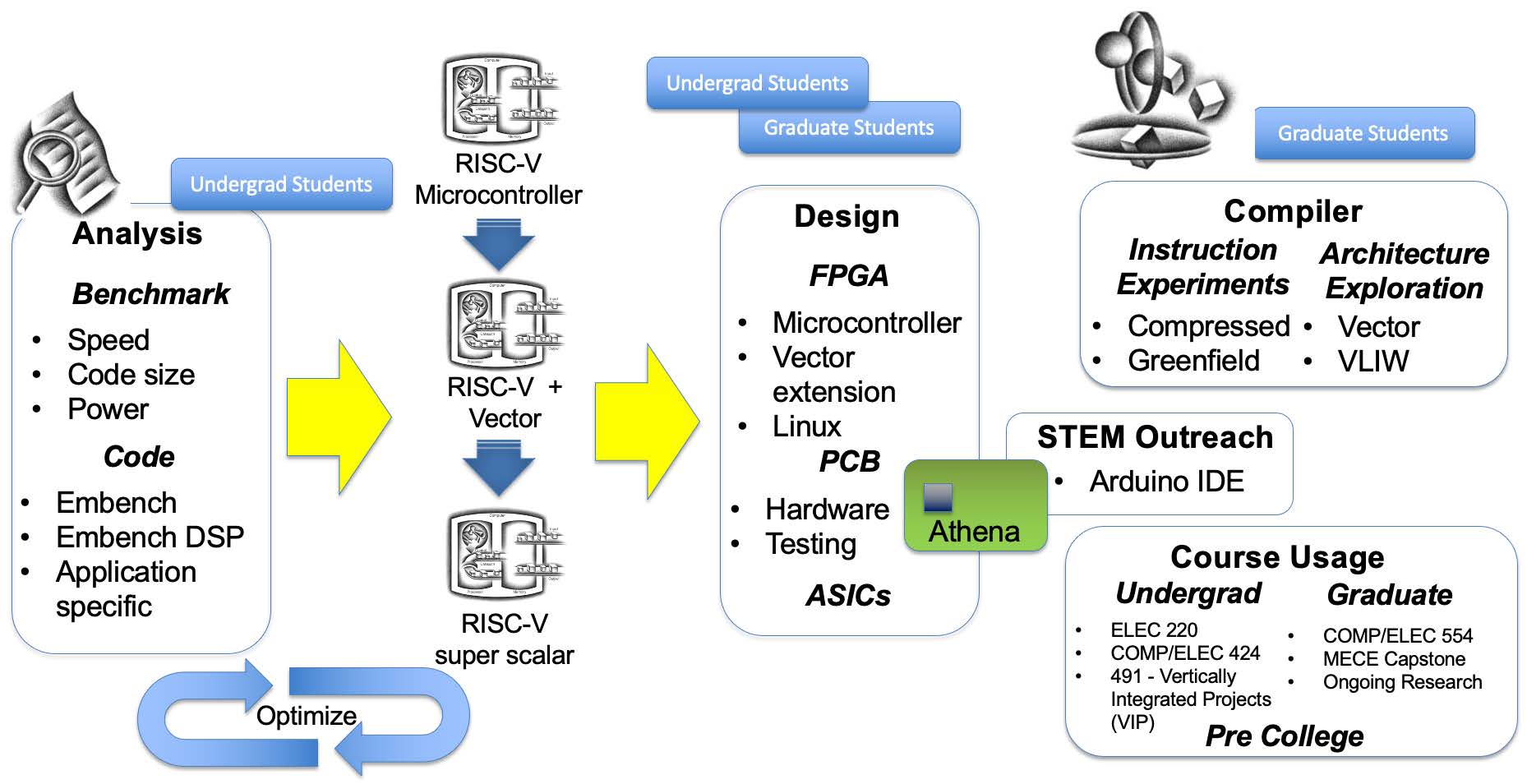Rice ECE Professor Ray Simar has been a pioneer in education initiatives that go beyond the walls of Rice University. Simar has now partnered with Joseph Young and Jennifer Heller to pioneer a new experiential computer engineering lab that would focus on microprocessors and help usher in the new era of computer engineering education at Rice University.
The new lab, named RVR Lab (RISC-V at Rice) will focus on experiential computer engineering research around RISC-V and microprocessors. As of August 2018, the RISC-V ISA has already been introduced into the Rice computer engineering curriculum with COMP 425 and ELEC 554, but the new lab will build on RISC-V technologies and guide students on their microprocessor design journeys, giving each student room to grow in their design abilities through their courses and hands-on engineering activities.
Simar, Young, and Hellar were recognized for their innovative work in developing a student centered lab by receiving a Faculty Initiatives Fund grant to help launch the lab. The fund is part of Rice's Creative Venture Funds, which helps faculty members develop adventurous research and scholarly projects that lead to larger endeavors and research breakthroughs. The grant will provide a significant level of support in the team’s ongoing mission to transform Rice’s undergraduate, graduate, and faculty’s ability to use and design microprocessors in new and unimagined ways.
“This very novel proposal will bring together experts from Google, RISC-V International, Embecosm, Embench and UC Berkeley, putting Rice students at the center of the new wave of developing microprocessors and learning RISC-V,” says Ray Simar. “The RVR Lab will bring in this next generation of microprocessor design tools to empower our students to design and implement computing systems much faster and much cheaper than is possible at Rice today.”
Joseph Young, Assistant Teaching Professor within ECE commented on the new computer engineering lab, “We’ve seen a lot of rapid growth and changes within computer engineering, and we’re excited to enable students to have a cutting edge learning experience at Rice, preparing them for the future of microprocessors."
The RVR Lab hopes to reach students prior to entering college as well with the team working to create a system that will work with what’s currently used in computer engineering courses in Houston's K-12 setting.
This new lab project will involve many Rice staff, faculty, and students in a world-wide community supporting RISC-V.

